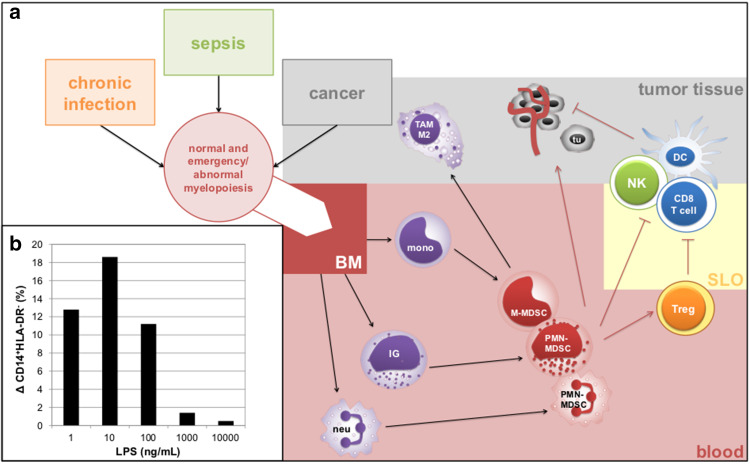Fig. 1.
Summary of MDSC nature and their immunosuppressive and tumor-promoting actions. a Acute-phase conditions, such as chronic infection, sepsis or cancer lead to normal and abnormal/emergency myelopoiesis that is controlled by the production of granulocytic or monocytic growth factors (GM-CSF, G-CSF and M-CSF) leading to the production of mature and immature myeloid cells from precursors in the bone marrow (BM). MDSCs may act in secondary lymphoid organs (SLO) by various immunosuppressive mechanisms (e.g., by the production of IDO, NOS, arginase, IL-10 or TGFβ) that stimulate Treg expansion and inhibit cytotoxic T cell and NK cell function or dendritic cell differentiation and maturation. Upon entering tumor tissue, M-MDSCs rapidly differentiate into tumor-associated M2 macrophages (TAM M2). Furthermore, MDSCs support tumor growth by production of pro-angiogenic factors or factors that promote metastatic spread (e.g., VEGF, bFGF, MMP-9). b To address the issue of strength of TLR4 activation on monocyte reprogramming, we examined dose-dependent change in M-MDSC proportion in monocytes upon 24 h stimulation of whole blood with LPS. Here, we show that low, but not high, endotoxin concentrations result in the increase of M-MDSC/CARS proportion in CD14+ cells. BM bone marrow, NOS nitric oxide synthase, SLO secondary lymphoid organ, tu tumor cell

